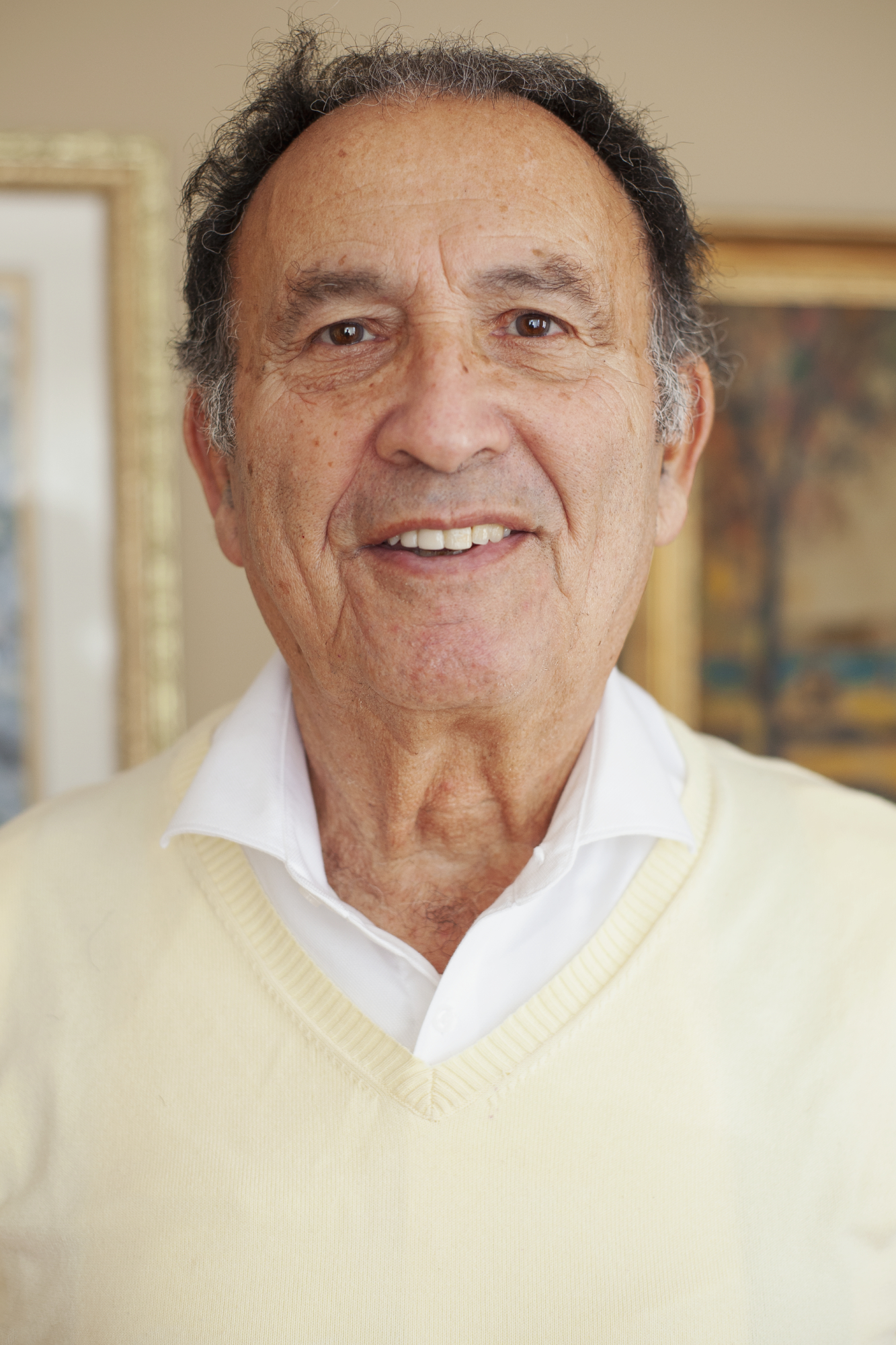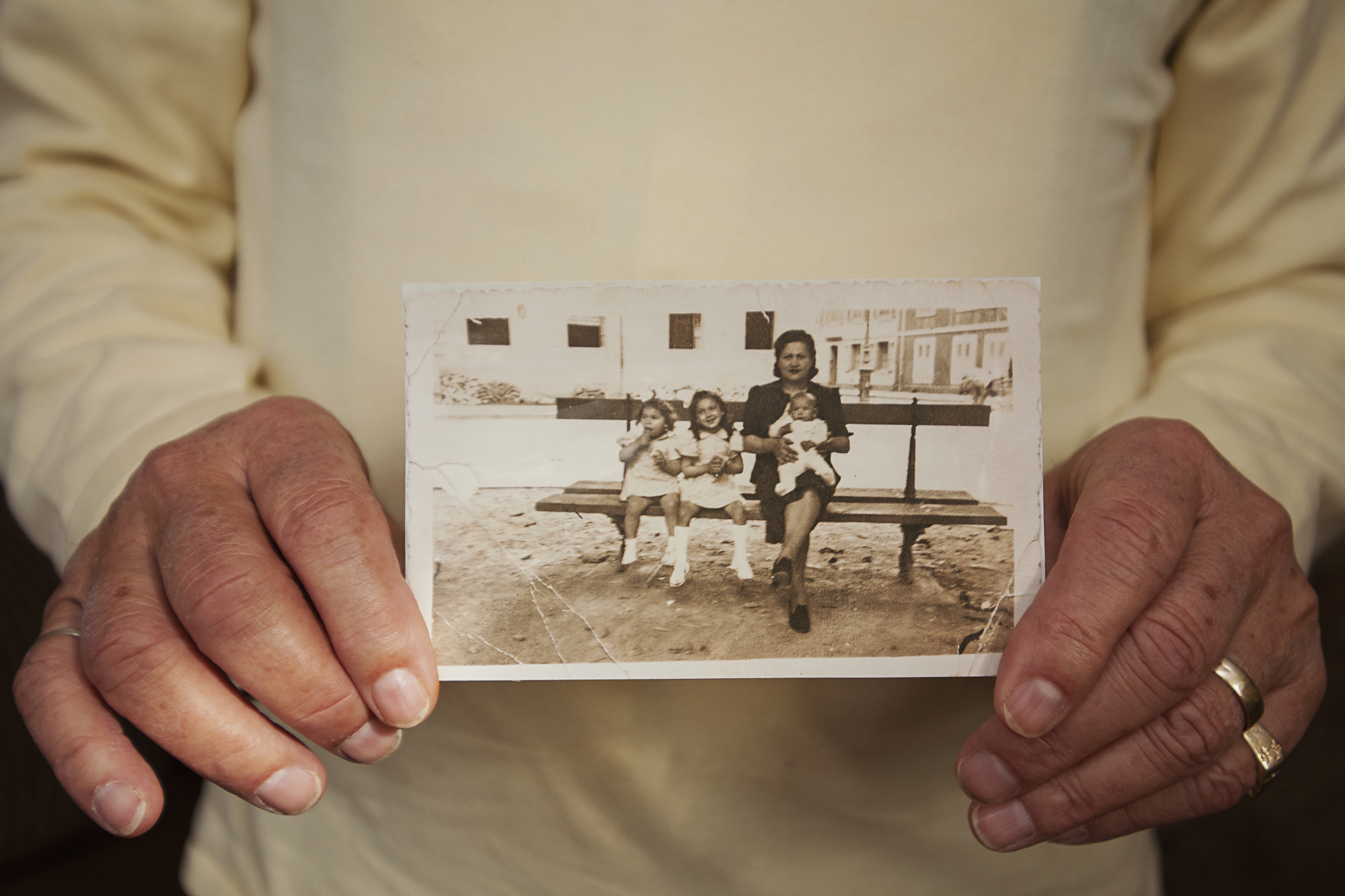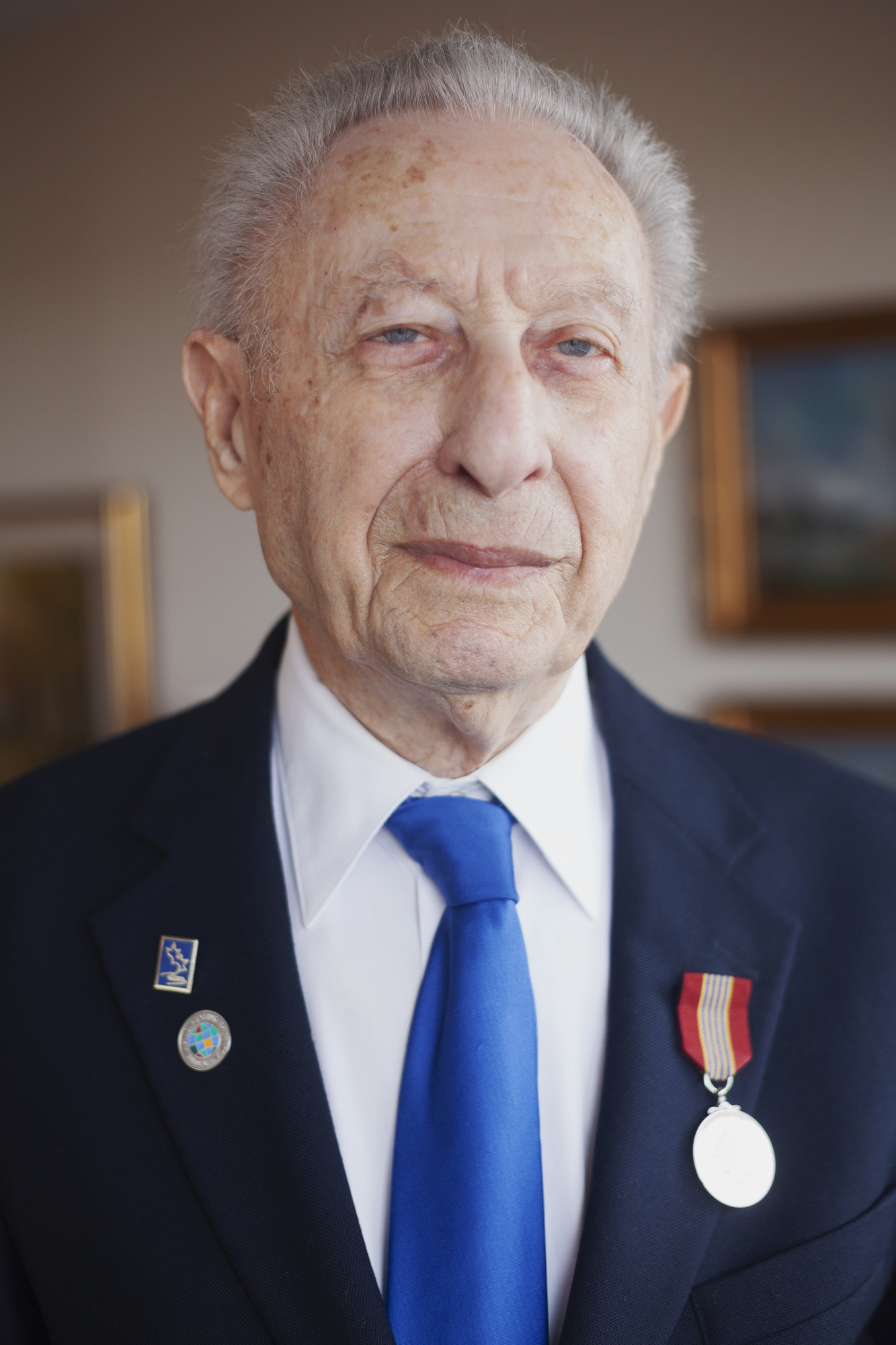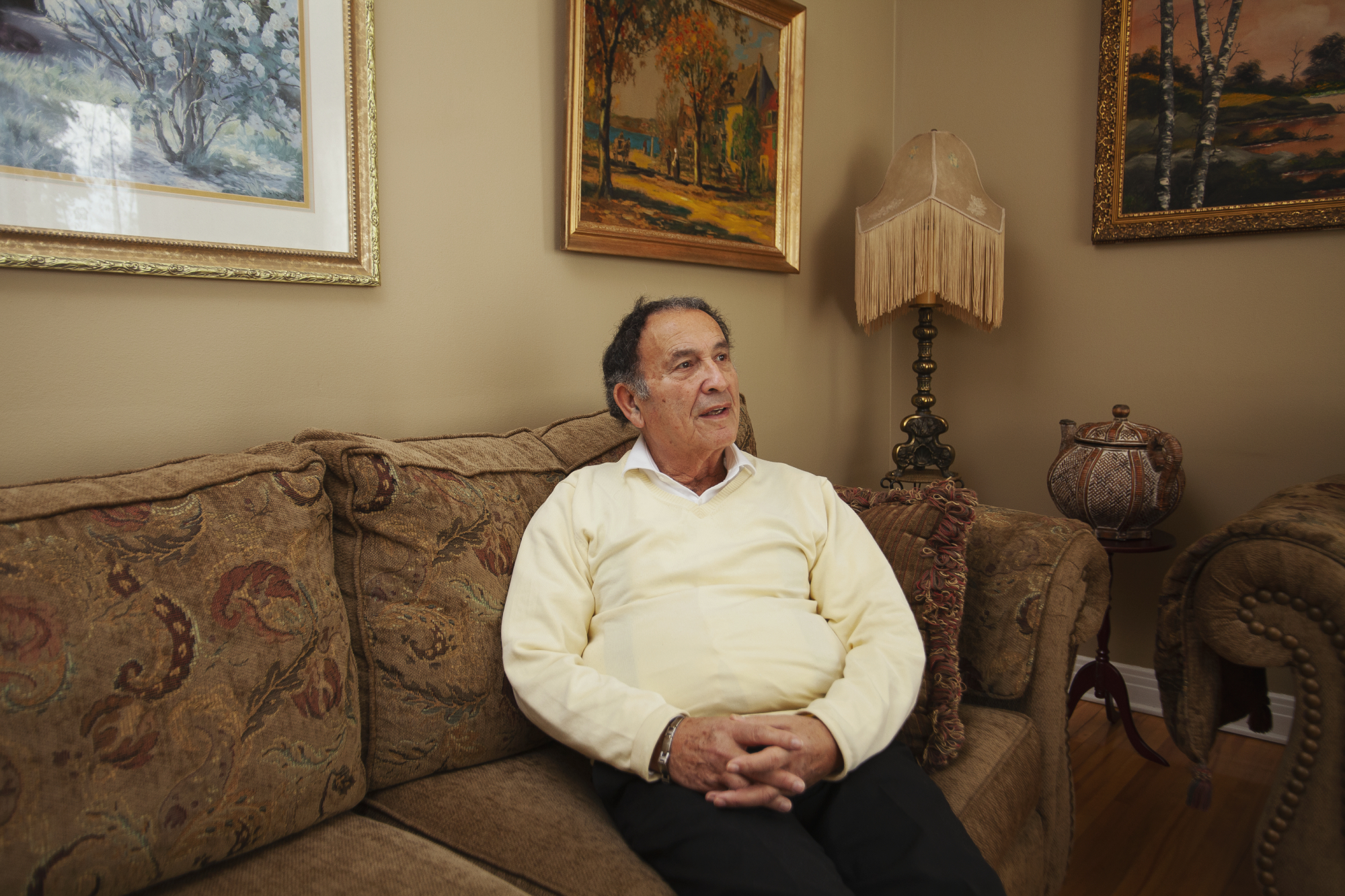
Léon Celemencki
Fajga and her children on a bench
Léon Celemencki lived with his family in Belfort, in northeastern France, in a zone that was occupied since his birth in June 1940. At dawn on July 12, 1942, his parents were arrested at their home. His mother was interned at the Pithiviers transit camp before being deported to Auschwitz (occupied Poland) where she was killed. Since Léon was just two years old at the time, he has almost no memory of his mother. All that remains of her is this one photograph below in which she is joyfully surrounded by her three children.

Listen to the photograph's story
This is my mother, here she is with me when I was two years old. My father was a fairground
merchant, my mother was a seamstress. They had a life that was, let’s say, relatively good, we
were comfortable. My two sisters were already in preschool and I was a baby. Then the war
broke out, Belfort was occupied by the Germans already in 1942. The police came to our house
and they said to my mother, “Get ready, take a suitcase, pack up your things, you have to come
with us to the police station.”
And my father got involved in that. I don’t know why, I don’t have the details, but apparently my
father said, “I know the police commissioner in this town very well.” He was a client of my
father’s who was a trader. And he said to me, “I’m going to go see him, there must be some
mistake. What is happening? What is happening? What happened?” And the police didn’t want
to know anything, and they took my mother to the police station. And my two sisters told me
that they remember seeing my mother at the police station. They went to see my mother, with
my father, at the police station in the evening.
And my father picked us up that same night and took us to his accountant to hide us. He was
afraid and he said, “We are going to put the children elsewhere.” And he left and he
disappeared from the situation. He must have been arrested or something. He left Belfort, she
was transferred to the Pithiviers camp which is near Paris, and she stayed there for two days
before being directly deported to Auschwitz. She was four months pregnant when she was
deported. Obviously, she went straight into a gas chamber.


